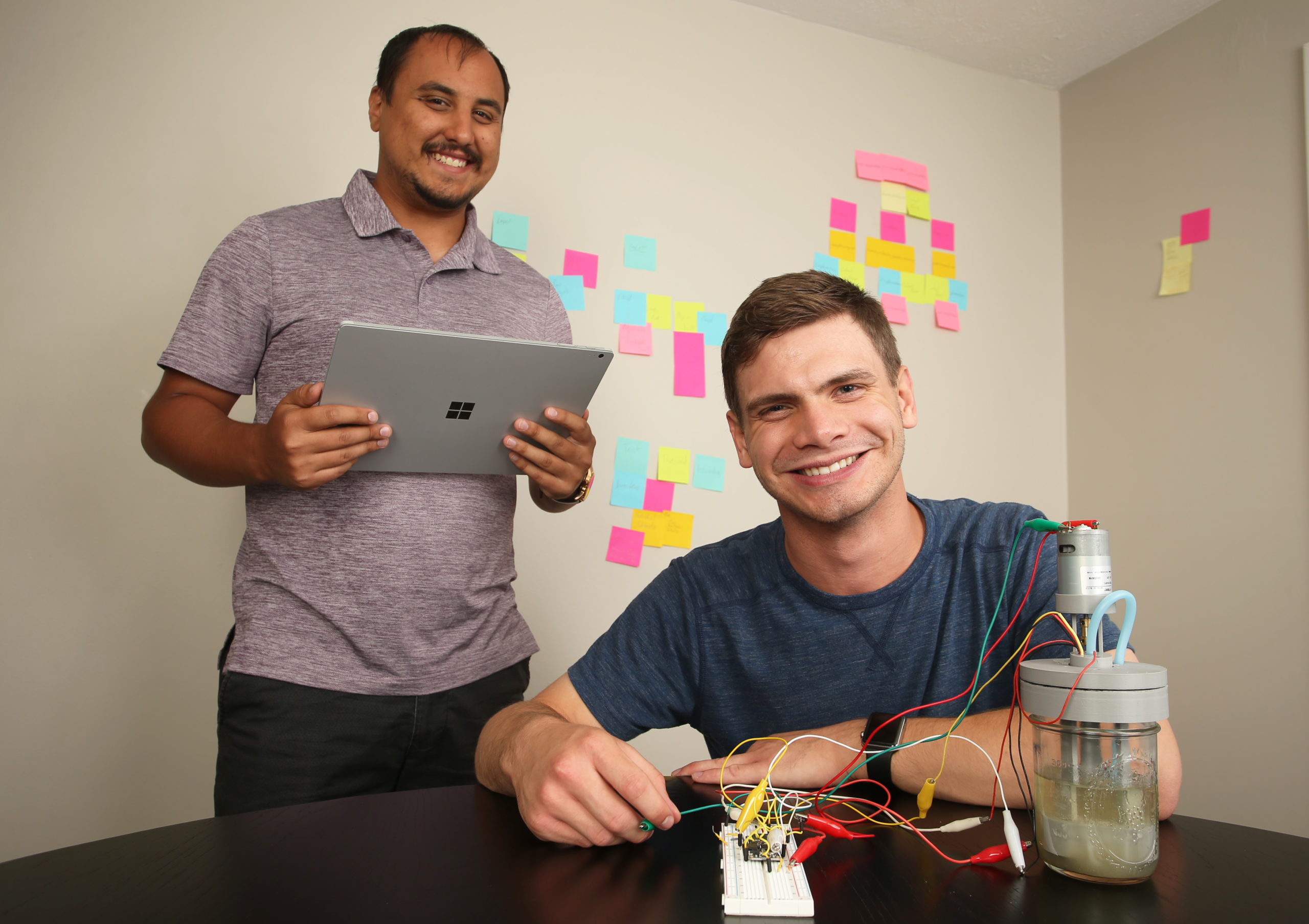In a pandemic, even innovation has to work from home.
Earlier this year, Pittsburgh-based incubators Innovation Works and Ascender opted to switch to remote programming for their newest cohorts as a result of the COVID-19 pandemic. But if startups don’t have to be Pittsburgh-based to receive assistance and funding from local accelerators, does it mean attraction to the area — or a motivation to stay — disappears?
Not necessarily, according to Nadyli Nuñez, executive director of co-working and incubator program Ascender. Ascender’s latest cohort started in June and exists solely online. Through Slack channels, Zoom calls, and office hours, the companies are meeting each other, sharing skills, and learning how to grow business or pivot in the turbulent time of coronavirus.

“Innovation is beyond the Pittsburgh region,” Nunez explained. “We talk about the importance of bringing diverse voices to the table. That also includes, in my opinion, outside the geographic location. There’s so much benefit when you can hear what it means to be an entrepreneur in a different city or in a rural area.”
The majority of Ascender’s newest cohort members are in Pittsburgh; just one startup comes from a rural area outside the city. When the program went remote, it made it easier for the founder to stay involved and helped lend the rest of the cohort a new perspective.

All of AlphaLab and AlphaLab Gear’s newest cohorts are Pittsburgh-based or Pittsburgh-bound, AlphaLab program coordinator Olivia Payne said. The Innovation Works incubators might be meeting online, for the time being, but the connections they make and the mentors they need are all very much tied to Pittsburgh.
That goes double when it comes to prototyping, explained AlphaLab Gear program coordinator Leah Simoncelli. “There’s just a massive manufacturing and supply chain network in Southwestern Pennsylvania,” she said. “ When you’re looking at taking your prototype and making small-batch orders, it makes sense to do it locally.”
Adding geographic diversity helps create ties outside the area within the cohort, Nuñez explained, serving as a calling card to the Pittsburgh area. “If you bring them through an incubator, they’re starting to meet the people in Pittsburgh,” Nuñez said. “They’re creating relationships here, too.”
The meetings and mentorship may be online, but the ideas and entrepreneurship are still there — in fact, they may be growing, explained Michelle Price, community and membership engagement coordinator for Chatham University’s Center for Women’s Entrepreneurship.
“When ‘stuff hits the fan’ so to speak, that’s when you realize needs that weren’t there, which is really the spark of small business,” said Price, who has been fielding calls daily from local women entrepreneurs trying to start businesses in Pittsburgh.
Shifting programming online for the accelerators was a necessity in the age of social distancing, but doing so also boosted accessibility for AlphaLab participants, Simoncelli said. With all the programming online, and much of it recorded, “entrepreneurs that we may not have been able to serve as well before with an in-person program we’re now better able to serve because virtual generally means more accessible.”
That includes members of the AlphaLab cohort who are hearing-impaired and benefit from Google Meet video calls with automatic closed captioning. “It’s not something we planned from the beginning, but we realized these tools only open things up for us,” explained Simoncelli.
There’s no way to know for sure what the new normal looks like, but Nuñez thinks this change could impact Ascender’s cohorts permanently. “I think moving forward, we might even accept one, two, maybe three companies that aren’t fully located in Pittsburgh into the incubator.”
Online programming, Zoom meetups, and Slack channels might not feel the same as a traditional in-person experience, “but our companies are able to function close to normal,” Payne said, with one caveat: “Except snacking — they’re missing the limitless snacking.”







